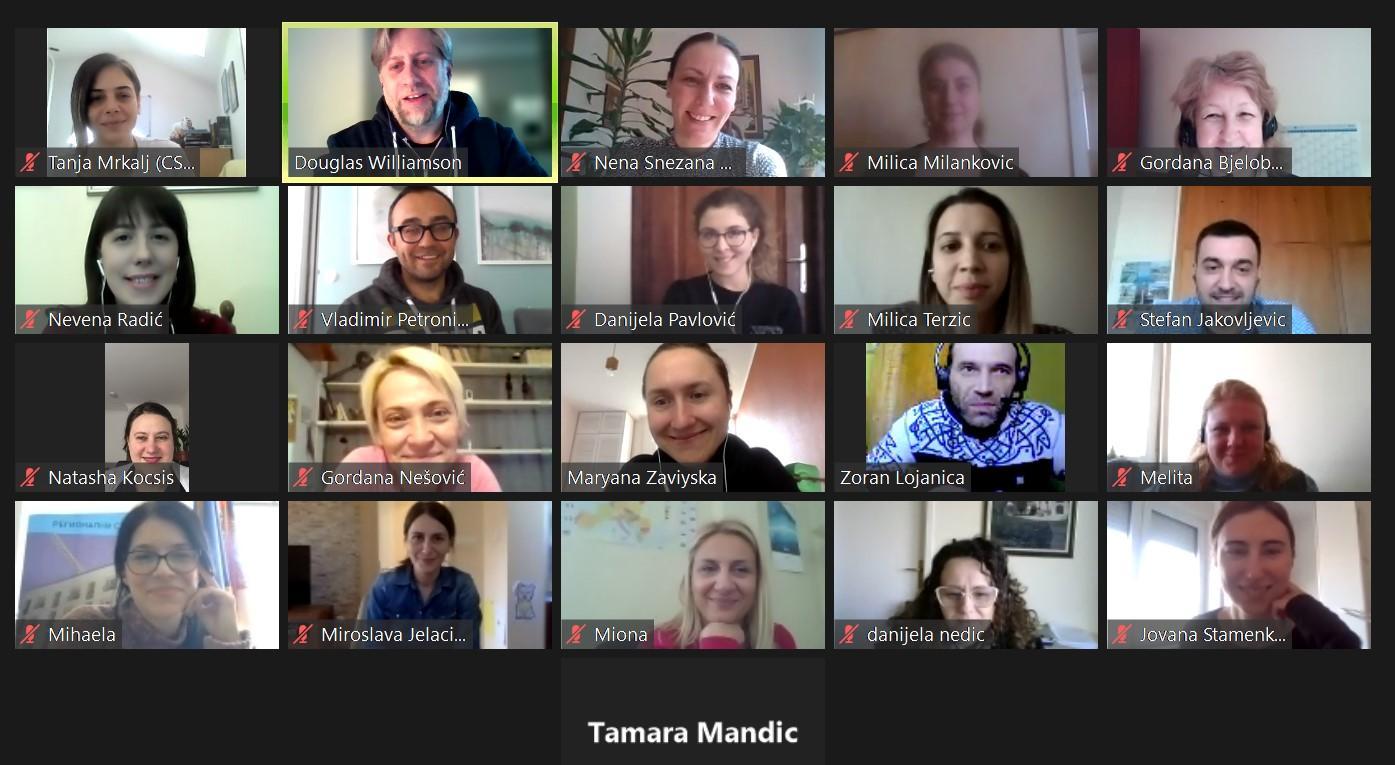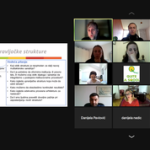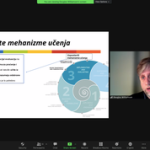One of the main goals of the global program “Migration and Diaspora” is to empower key actors in selected partner countries to make greater use of the positive effects of regular migration and diaspora for local socio-economic development. Among other things, this is achieved through continuous training of representatives of national institutions, i.e. by providing access to international dialogues and information of global importance in the field of migration policies.
In cooperation with the Institute for Collective Leadership (CLI), an international non-profit organization specializing in improving cooperation skills, GIZ conducts an extensive training cycle to successfully overcome sustainability challenges with a focus on high-quality stakeholder cooperation, dialogue change and collective leadership. For professionals working on migration and diaspora issues in the Ministry of Labor, Employment, Veterans and Social Affairs, then the Ministry of Interior, the Ministry of Economy, the Faculty of Political Sciences, the Faculty of Geography, the Center for Social Policy, the Serbian national Radio and Television Broadcasting and to many other civil society organizations, the private sector, academia, etc., at the local level, the trainings are organized in three modules and represent an additional catalyst within the ongoing initiatives in the field of migration and diaspora participation.
The participants of the trainings successfully adopted the second Module, which will be completed during July at an interactive webinar for the practical application of what has been learned.
“Employees in institutions dealing with migration in practice most often face the challenge of adapting the legal and political framework to the changing character of migration and changing the political situation in the region and in the world. The skills we have acquired will help us in complex processes that require the involvement and integration of various actors, “said Milica Milankovic, a representative of the Ministry of Interior, one of the participants in the training.
When it comes to goals in terms of cooperation and business relations, the previous Modules worked on the adoption of tools to build additional trust among key actors in the Republic of Serbia in the field of migration management and cooperation with the diaspora, and to reach agreement on working methods and formation of initial working groups on cross-sectoral cooperation, cooperation with the diaspora and positive migration stories, all in the direction of establishing a platform for multi-stakeholder dialogue to manage migration and diaspora engagement, as well as learning a common language and tools for collective leadership and dialogue between actors.
“We expect empowered actors who will know in the future how to independently organize and lead a multi-actor dialogue, who then have an idea how to revive cooperation systems and are aware of the positive outcomes of migration, bearing in mind the great sensitivity of this topic. We hope that the participants will directly apply the acquired skills in their daily work in order for Serbia to adequately use the numerous advantages of regular migration and better involve the diaspora in sustainable development, said Jovana Stamenković (GIZ), Migration Management Component Manager within the PMD program.
The skills of conducting a structured multi-stakeholder dialogue focused on concrete results in the development of sustainable initiatives represent a collective competence of all members of the dialogue and are based on the values of sustainability and cooperation for the common good. Such dialogues can have a transformative effect in each country and represent a path from defining a development-oriented migration policy to application in concrete proposals for action (planning and implementation).
Participants who complete the three modules will be empowered agents of change in the field of migration and the diaspora who possess a range of dialogue skills, tools and practical experience for the realization of complex ecosystems for cooperation.
The third Module will be held in September this year, after which the participants of all workshops planned for the trainings will obtain a professional certificate of a specialist in collective leadership.
The global program “Migration and Diaspora” is supported by the German Federal Ministry for Economic Cooperation and Development (BMZ). The program is implemented in Serbia by the Deutsche Gesellschaft für Internationale Zusammenarbeit (GIZ) GmbH in partnership with the Ministry of Labor, Employment, Veterans and Social Affairs and the National Employment Service, as well as in close cooperation with the Commissariat for Refugees and Migration and other relevant actors. For more information on this topic, you can contact the project managers from GIZ, Jovana Stamenković (jovana.stamenkovic@giz.de), or for questions of cooperation with the media Marija Branković (marija.brankovic@giz.de). You will also find current offers of the Program on our Facebook page Migration and Diaspora Serbia.





